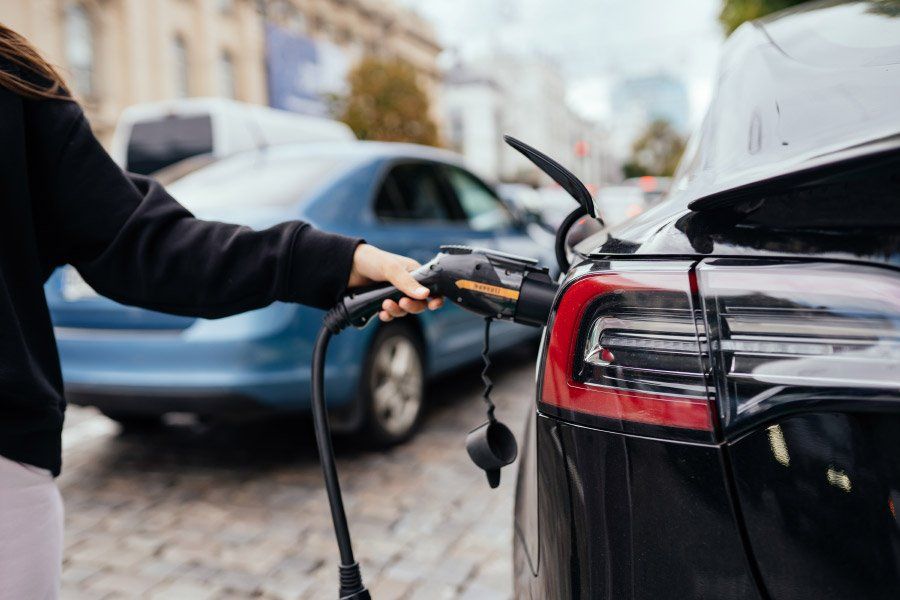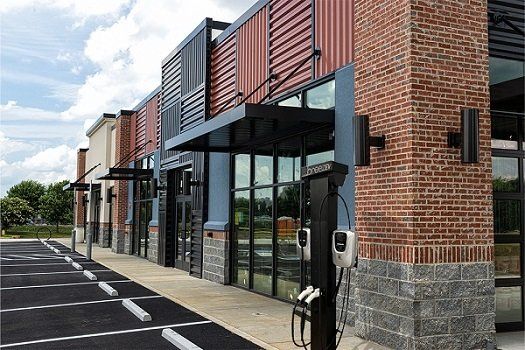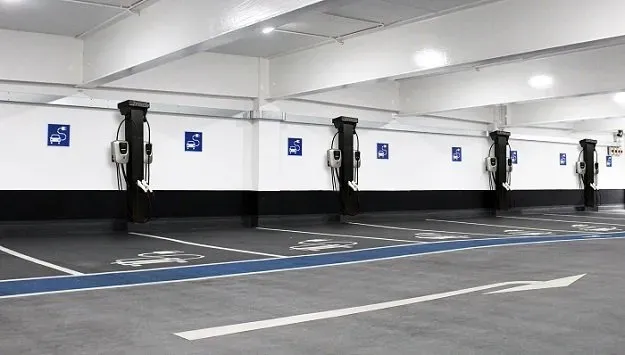Bloomberg NEF predicts that annual electric vehicle (EV) sales will reach 6.3 million in 2021, up from 2 million in 2019; 500 zero-emission vehicle models are currently available globally, up 37% since last year; McKinsey predicts that a favorable regulatory environment and increasing consumer demand will likely push EV sales to make up about 53 percent of all passenger car sales by 2030; nonetheless, auto dealerships are stalling, as many do not have the charging infrastructure or experience selling EVs. Automakers have become reluctant to send limited EV inventory to dealerships without adequate preparation. Many automakers require dealerships to install charging infrastructure before agreeing to ship inventory.
When planning your electric vehicle charging installation, strategic thinking is essential. Complying with manufacturers' requirements isn't just a way to future-proof your business but also a way to enhance offerings, control the service and maintenance aspect of your business, and build potential new revenue streams. Before making an investment, work with a partner who can turn a complicated situation into an easier one and help you reap the benefits of electrification.
Electric vehicle sales are increasing. The customer experience is a critical factor in closing a deal. As with conventional vehicles, salespeople must understand the products they're selling inside and out in order to help customers overcome any concerns they have about switching to an electric vehicle. A recent consumer report survey noted that range and availability of charging stations were chief among US motorists' concerns about going electric; similarly, in a current CSE survey of California car dealerships, most respondents said the questions they get from customers aren't about the EVs themselves.
Instead, many customers want to know where and how to keep an EV charged up. So how confident are you that your sales team can answer these questions?
A well-informed salesperson can better support the customer journey overall. For example, using on-site charging solutions, dealers can help drivers understand how charging works, demonstrate how to find charging spots, and explain that most charging will occur while they are doing something else, like sleeping or working.
Customers will turn to trusted dealerships that can guide them as they consider their purchase. Speaking the language to educate customers on the overall EV experience is critical to creating consumer confidence. Your expertise will, in turn, help you reach the ultimate goal of inspiring emotions in the customer that lead to a purchase consideration — not to more anxiety.
Lack of charging infrastructure is a significant concern for potential EV customers, who need to know how and where they can keep their cars charged up. In fact, many buyers want to know more about the charging options available than about any other aspect of an EV's performance.
Creating operational efficiencies is essential to every successful electric vehicle (EV) business. Haphazard charging infrastructure installations can actually have a negative impact on your operations, but when strategically implemented, you can control your entire EV business with one integrated back end. In addition, a comprehensive, networked charging solution helps simplify the electrification process overall and enables you to scale your business as you go.
Chargers in your service bay allow mechanics to drive vehicles as much as needed during maintenance sessions. You can also return vehicles to their owners fully charged, which is a small amenity that will build loyalty.
Don't cut corners just to defray the upfront cost of implementing an EV charging solution. Every state, as well as the federal government, offers a range of grants, rebates, and tax credits to help businesses find cost-effective solutions to establish EV infrastructure. As a result, many businesses can cover the bulk of the implementation expense and begin to see a return on their investment quickly through increased vehicle sales as well as decreased fuel and maintenance costs. The reality is that the world is moving in the direction of battery electric vehicles (BEVs), and the infrastructure requirements are accurate. Without the ability to charge, it will be challenging to compete.
A recent McKinsey article states, "The growth of electric mobility will have far-reaching consequences for auto dealers, touching virtually every aspect of the business." One way to sidestep some of the complexity is to find a comprehensive EV charging solution that meets all your needs. Having one dedicated partner, rather than mixing and matching for the various aspects of your EV charging environment, can save you time and money.
You can receive financial assistance to help cover the upfront cost of installing your EV charging infrastructure. We can also help you build expertise around EVs and EV charging so you can deliver a differentiated customer experience. Breezev is compatible with all leading vehicle makes, including Nissan, Mini, Mitsubishi, Chevrolet, and Kia.
Leave A Reply
Search
Recent Posts







